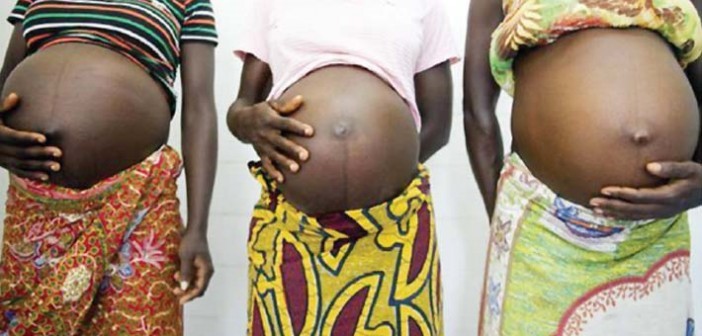
About 77 percent of pregnant teenage mothers in Korogocho slums reported having unintended pregnancies in a research conducted by the African Population Health and Research Centre.
Approximately 72 percent were single and 49 percent were still in school at the time they became pregnant for the first time. Most girls first had sex while still in school at 73.7 percent, and 56.2 percent did not use condoms the first time they had sex
The research found that factors associated with early and unintended pregnancy include curiosity about sex, poor contraceptive knowledge, ignorance, breakdown of families, family conflict, limited parental support, lack of provisioning and supervision, poverty, sexual violence, and COVID–19–-related school closure.
92 percent of girls accessed antenatal care services. However, most initiated antenatal care late. Consequently, only one in three of them, or 34.6 percent completed four antenatal care visits, and approximately 3 percent completed eight visits.
It was revealed that lack of support from parents or guardians, low knowledge of antenatal care, social stigma, isolation from community members, poverty, shame, ignorance, and fear of health care providers hinder girls from seeking antenatal care services early.
About one in three girls reported mistreatment and abuse during delivery. Specifically, 23.9% of adolescent mothers were verbally abused, 6.2% were physically abused, and 14.3% were stigmatized or discriminated against.
Upon delivery, adolescent mothers faced economic hardships, such as a lack of income to take care of themselves and their babies.
As a result, about 74 percent of girls were somewhat or very worried about not being able to take care of their children, and 46 percent of adolescent mothers reported that they had no one to rely on.
Because of the burden of childcare responsibilities and the unaffordability of daycare center fees, the girls reported being unable to work or return to school.
Due to mental distress, and economic hardships, 40 percent reported mild depression symptoms, 35 percent minimal symptoms, and 25.3 percent moderate or severe symptoms. Additionally, early and unintended pregnancy exposed adolescent girls to social stigma and isolation the girls said.
Close to half of the girls or 48.8 percent had experienced violence—physical, emotional, and sexual—from intimate and non-intimate partners. Girls were more likely to have experienced emotional violence (37.2%), followed by physical (27.4%) and sexual (20.8%) violence. Approximately 25% of the girls experienced intimate partner violence.
About two out of five or 42 percent pregnant and parenting girls desired to return to school but were unable to due to several challenges, including lack of childcare support, financial difficulties, parental opposition to schooling, and a hostile school environment

Leave a Reply